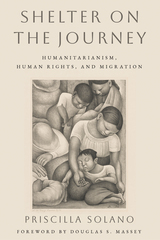6 start with C start with C
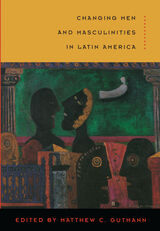
The contributors look at Mexico, Argentina, Ecuador, Brazil, Colombia, Peru, Venezuela, Chile, and the United States. They bring to bear a number of disciplines—anthropology, history, literature, public health, and sociology—and a variety of methodologies including ethnography, literary criticism, and statistical analysis. Whether analyzing rape legislation in Argentina, the unique space for candid discussions of masculinity created in an Alcoholics Anonymous group in Mexico, the role of shame in shaping Chicana and Chicano identities and gender relations, or homosexuality in Brazil, Changing Men and Masculinities highlights the complex distinctions between normative conceptions of masculinity in Latin America and the actual experiences and thoughts of particular men and women.
Contributors. Xavier Andrade, Daniel Balderston, Peter Beattie, Stanley Brandes, Héctor Carrillo, Miguel Díaz Barriga, Agustín Escobar, Francisco Ferrándiz, Claudia Fonseca, Norma Fuller, Matthew C. Gutmann, Donna Guy, Florencia Mallon, José Olavarría, Richard Parker, Mara Viveros
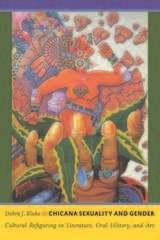
Blake looks at how the Chicana professional intellectuals and the U.S. Mexicana women refigure confining and demeaning constructions of female gender roles and racial, ethnic, and sexual identities. She organizes her analysis around re-imaginings of La Virgen de Guadalupe, La Llorona, indigenous Mexica goddesses, and La Malinche, the indigenous interpreter for Hernán Cortés during the Spanish conquest. In doing so, Blake reveals how the professional intellectuals and the working-class and semiprofessional women rework or invoke the female icons to confront the repression of female sexuality, limiting gender roles, inequality in male and female relationships, and violence against women. While the representational strategies of the two groups of women are significantly different and the U.S. Mexicanas would not necessarily call themselves feminists, Blake nonetheless illuminates a continuum of Chicana feminist thinking, showing how both groups of women expand lifestyle choices and promote the health and well-being of women of Mexican origin or descent.

The story of sexual abuse of children by Catholic priests has sent shock waves around the nation and will not fade from consciousness or the news. We ask, "How could this happen?" And then we ask, "How could the Catholic Church let this continue for so long—in seeming silence and duplicity?" Paul R. Dokecki, a community psychologist at Vanderbilt University, an active Catholic, and a former board member of the National Catholic Education Association, investigates the crisis not only with the eye of an investigative reporter, but with the analytical skills and training of a psychologist as well. Moreover, he lays the foundation for reasonable and practical reform measures.
Through the scandal in the Archdiocese of Boston as well as the earlier, if less well known but momentous, case in the Diocese of Nashville, Dokecki reports on and analyzes what is ultimately an abuse of power—not only by the clergy but by church officials. As distasteful as these instances may be, they are compelling reading, enlightened by the author's abilities to contextualize these events through the lenses of professional ethics, the human sciences, and ecclesiology. According to Dokecki, these and other instances of clergy sexual abuse reveal a systemic deficiency in the structure and the nature of the church itself, one that has prevented the church from adequately dealing with its own worst sins.
Dokecki may shine a spotlight into the church's dark corners—but he does so in the service of enlightenment, calling the church back toward the vision of Vatican II and the spirit of Pope John XXIII—toward a greater transparency, a more open and participatory governance in the church, and for a greatly expanded role for the people of God who make up the church. It is in this way, Dokecki believes, the church will be better able to keep the innocent children of the church safe from harm.
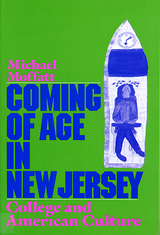
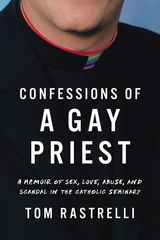
Tom Rastrelli is a survivor of clergy-perpetrated sexual abuse who then became a priest in the early days of the Catholic Church’s ongoing scandals. Confessions of a Gay Priest divulges the clandestine inner workings of the seminary, providing an intimate and unapologetic look into the psychosexual and spiritual dynamics of celibacy and lays bare the “formation” system that perpetuates the cycle of abuse and cover-up that continues today.
Under the guidance of a charismatic college campus minister, Rastrelli sought to reconcile his homosexuality and childhood sexual abuse. When he felt called to the priesthood, Rastrelli began the process of “priestly discernment.” Priests welcomed him into a confusing clerical culture where public displays of piety, celibacy, and homophobia masked a closeted underworld in which elder priests preyed upon young recruits.
From there he ventured deeper into the seminary system seeking healing, hoping to help others, and striving not to live a double life. Trained to treat sexuality like an addiction, he and his brother seminarians lived in a world of cliques, competition, self-loathing, alcohol, hidden crushes, and closeted sex. Ultimately, the “formation” intended to make Rastrelli a compliant priest helped to liberate him.
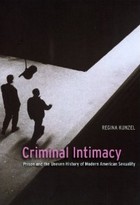
READERS
Browse our collection.
PUBLISHERS
See BiblioVault's publisher services.
STUDENT SERVICES
Files for college accessibility offices.
UChicago Accessibility Resources
home | accessibility | search | about | contact us
BiblioVault ® 2001 - 2024
The University of Chicago Press



